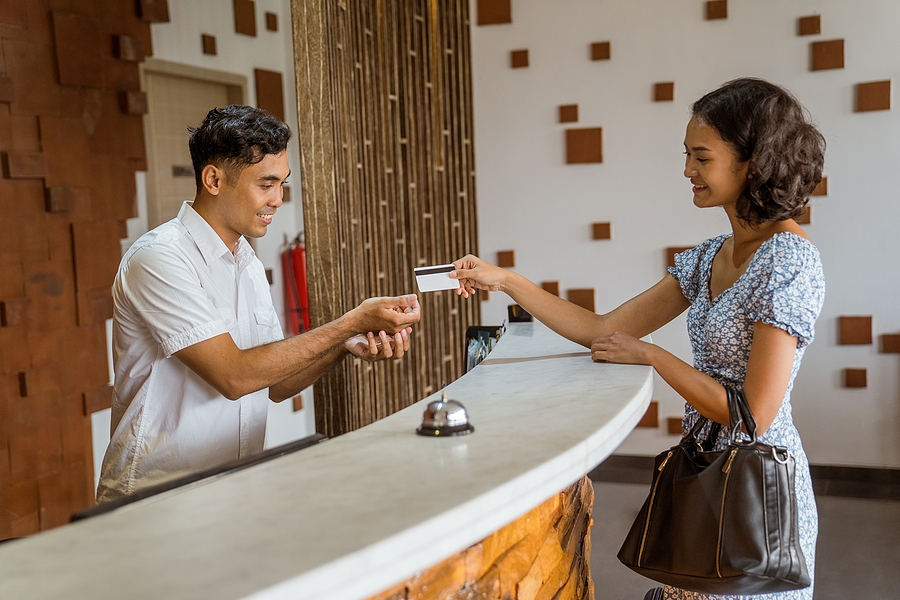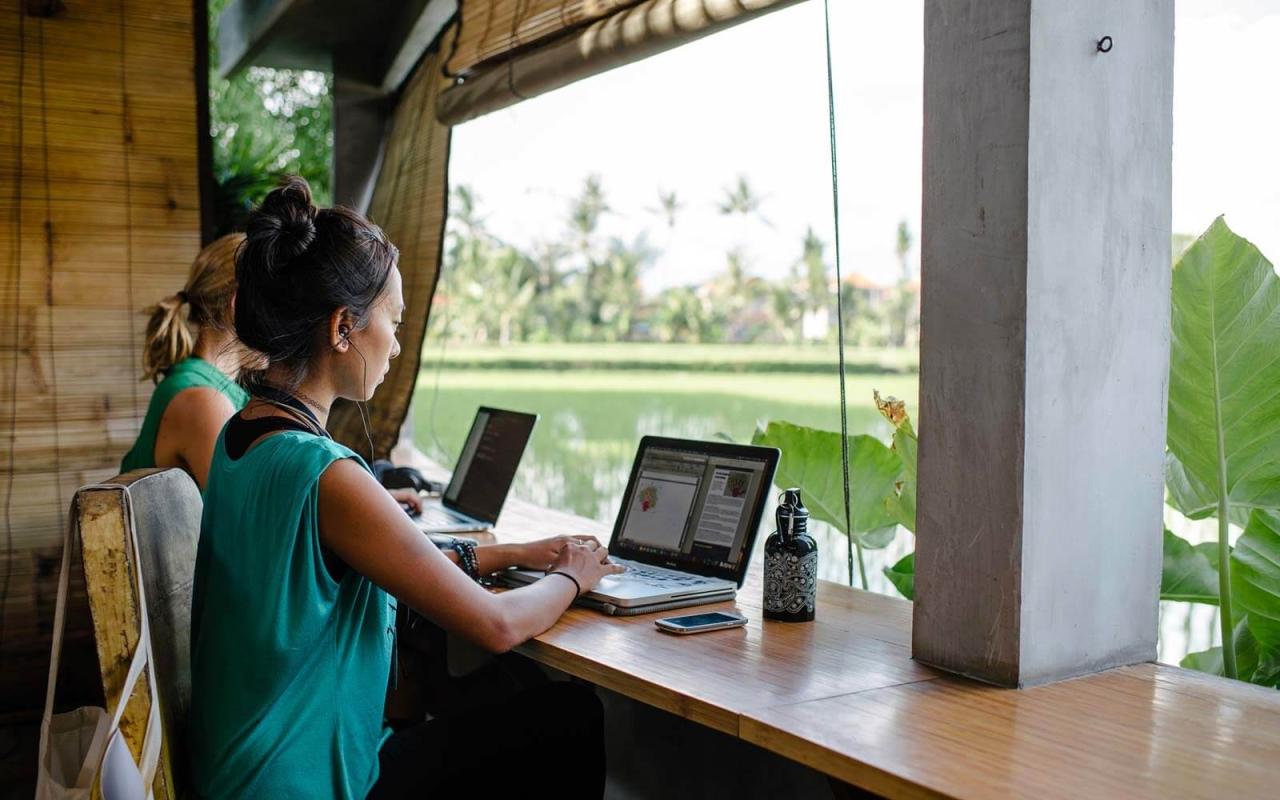In an increasingly competitive global travel market, the quest for truly memorable and distinctive service has redefined expectations. Today, Personalized Guest Experiences are no longer a luxury; they are the gold standard, fundamentally reshaping how hotels, resorts, and travel providers interact with their clientele. This comprehensive article delves into the burgeoning world of bespoke hospitality, exploring what defines personalization, the powerful forces driving its rapid adoption, and the cutting-edge innovations poised to shape its future. It’s a journey into how anticipating needs and tailoring every touchpoint transforms a simple stay into an unforgettable, curated adventure.
The Essence of Personalization

At its core, a truly personalized guest experience moves far beyond generic “good service.” It’s about recognizing, understanding, and anticipating the unique preferences, desires, and even unstated needs of each individual traveler, and then proactively tailoring every aspect of their journey accordingly. This creates a sense of being genuinely seen, valued, and understood.
True personalization in hospitality encompasses:
A. Individual Recognition: Acknowledging the guest by name, remembering past preferences (e.g., favorite coffee, pillow type, preferred room temperature), and acknowledging special occasions (birthdays, anniversaries).
B. Anticipatory Service: Proactively offering solutions or amenities before the guest even has to ask. For example, pre-stocking a mini-bar with preferred beverages, or offering a late check-out if their flight details are known.
C. Tailored Recommendations: Suggesting local activities, dining options, or hotel services that align with the guest’s specific interests, travel style, and past behaviors, rather than generic recommendations.
D. Customized Communications: Delivering messages (emails, app notifications) that are relevant to the guest’s stage in their journey and tailored to their preferences and specific booking details.
E. Flexible Offerings: Adapting services, amenities, and even room configurations to meet unique requests, such as special dietary needs, specific pillow types, or particular room setups for work or leisure.
F. Emotional Intelligence: Staff demonstrating empathy, reading guest cues, and adapting their service style to the individual’s mood or personality, providing comfort and reassurance.
Why Personalization Is Paramount
The rapid acceleration of personalized guest experiences in hospitality is driven by a confluence of powerful forces, reshaping both consumer expectations and industry strategies.
A. Evolving Consumer Expectations
Today’s travelers, especially Millennials and Gen Z, grew up in an era of hyper-personalization across all digital platforms – from streaming services recommending movies to e-commerce sites suggesting products. They now expect the same level of tailored experiences from their travel providers. Generic, one-size-fits-all service feels outdated and impersonal.
B. The Rise of the Experience Economy
Travelers are increasingly seeking unique, authentic, and transformative experiences rather than just commodities (a bed, a meal). Personalization is key to delivering these bespoke experiences, allowing hotels to differentiate themselves by crafting unforgettable moments that resonate deeply with individual preferences and interests. It’s about creating memories, not just transactions.
C. Abundance of Choice and Competition
The lodging market is more crowded and diverse than ever before, with traditional hotels, boutique properties, vacation rentals, and co-living spaces all vying for attention. Personalization serves as a critical differentiator, allowing hotels to stand out and build strong emotional connections that foster loyalty in a highly competitive landscape.
D. Power of Data and Technology
Advancements in Artificial Intelligence (AI), Machine Learning (ML), Big Data analytics, and robust Customer Relationship Management (CRM) systems have made personalization at scale technically feasible and economically viable. Hotels can now collect, process, and act upon vast amounts of guest data to inform and automate personalized interactions across all touchpoints.
E. Social Media and Review Culture
In the age of social media, guest experiences are instantly shared and amplified. A highly personalized, delightful experience can lead to glowing reviews and organic endorsements, while a lack of personalization can result in negative feedback. Hotels recognize the direct link between personalized service and positive online reputation, which is crucial for attracting new guests.
F. Building Guest Loyalty and Lifetime Value
Personalization fosters stronger emotional connections between guests and a brand. When guests feel understood and valued, they are far more likely to become loyal repeat customers, increasing their lifetime value to the hotel. This reduces customer acquisition costs and builds a stable revenue base.
Pillars of Truly Personalized Guest Experiences

Delivering genuine personalized guest experiences is not an overnight feat; it’s built upon strategic foundations and a continuous commitment to understanding and serving the individual.
A. Robust Data Collection and Management
The bedrock of personalization is comprehensive and ethically sourced guest data. This includes:
- Pre-arrival Data: Information from booking systems, loyalty programs, online profiles, and preferences indicated during reservation.
- During-stay Data: Observations by staff, interactions via apps, in-room technology usage (e.g., thermostat settings, entertainment choices), and dining preferences.
- Post-stay Data: Feedback from surveys, reviews, and social media comments.This data must be securely stored, continually updated, and integrated across all relevant hotel systems (PMS, CRM, POS) to create a single, holistic guest profile. Strict adherence to data privacy regulations (like GDPR and local laws in Indonesia) and transparent communication with guests about data usage are non-negotiable.
B. Advanced Technology and AI Integration
Technology transforms data into action.
- AI-Powered CRM Systems: Artificial Intelligence analyzes vast datasets to segment guests, predict preferences, and automate personalized communications.
- Machine Learning Algorithms: These learn from past interactions to refine recommendations for amenities, activities, and even pricing.
- IoT (Internet of Things) in Smart Rooms: Sensors in rooms gather real-time data on guest usage (e.g., preferred lighting, temperature), allowing for automated environmental adjustments and anticipatory service.
- Voice Assistants and Chatbots: Provide instant, personalized responses to queries and requests, often understanding natural language.
- Mobile Apps: Serve as a central hub for guest communication, personalized offers, mobile check-in/keyless entry, and direct service requests.
C. Empowered and Emotionally Intelligent Staff
Technology enhances, but doesn’t replace, the human element.
- Training and Empowerment: Staff must be rigorously trained in recognizing guest cues, accessing guest preference data (ethically), and empowered to make on-the-spot decisions to personalize service and create moments of delight without needing constant managerial approval.
- Soft Skills and Empathy: Developing strong interpersonal skills, active listening, and empathy is crucial. Staff should be able to read guest emotions and adapt their service delivery accordingly, providing a genuinely warm and caring experience.
- Data Literacy for Frontline Staff: Ensuring that frontline staff can easily access and understand key guest preferences from the CRM system to inform their interactions.
D. Seamless Communication Channels
Guests should be able to communicate with the hotel using their preferred method, and receive consistent, personalized responses.
- Multi-Channel Access: Offering communication via phone, email, hotel app, popular messaging platforms (WhatsApp, WeChat), and in-person.
- Consistent Messaging: Ensuring personalized information and service is consistent across all channels.
- Proactive Outreach: Sending personalized pre-arrival welcome messages, during-stay check-ins, and post-stay thank-yous.
E. Flexible and Adaptive Service Delivery
Personalization requires agility in operations.
- Customizable Offerings: Ability to easily adapt room setups, mini-bar contents, dietary menus, or activity schedules based on individual requests.
- Agile Operations: Internal processes (housekeeping, room service, concierge) must be flexible enough to accommodate unique requests efficiently.
- Personalized Amenities: Offering choices of pillows, toiletries, in-room entertainment, or even welcome gifts tailored to the guest.
F. Leveraging Guest Feedback and Continuous Improvement
Personalization is an ongoing journey, not a destination.
- Real-time Feedback Mechanisms: Utilizing in-app surveys, digital feedback forms, and sentiment analysis tools to capture guest sentiment during their stay.
- Post-Stay Surveys and Review Monitoring: Actively soliciting and analyzing post-stay feedback on review platforms and social media.
- Continuous Iteration: Using insights from feedback and data to constantly refine personalization strategies, train staff, and adapt offerings to better meet evolving guest expectations.
Types of Personalized Experiences Flourishing
The concept of personalization manifests in diverse ways across the hospitality landscape, catering to a wide spectrum of traveler needs.
A. Pre-Arrival Customization
This begins even before the guest steps foot in the lobby.
- Online Preference Profiles: Guests fill out detailed profiles about their likes, dislikes, allergies, and special requests.
- Pre-Check-In Communication: Personalized welcome emails, pre-arrival surveys, and digital key delivery to smartphones.
- Room Pre-Setting: Climate, lighting, and entertainment systems pre-adjusted to preferred settings based on stored data.
- Mini-Bar Customization: Guests can pre-order specific snacks, beverages, or even dietary items to be in their room upon arrival.
B. In-Room Personalization
The physical space becomes a reflection of the guest’s preferences.
- Smart Room Controls: Guests control temperature, lighting, curtains, and entertainment via a personal device or voice.
- Personalized Welcome Messages: On in-room TVs or tablets, welcoming the guest by name and highlighting relevant amenities or local events.
- Customized Amenities: Choice of pillow menus, aromatherapy diffusers, specific toiletries, or even exercise equipment in-room upon request.
- Tailored Entertainment: Smart TVs that remember streaming accounts or recommend content based on past viewing.
C. Dining and Culinary Customization
Food and beverage experiences are highly adaptable.
- Dietary Accommodation: Seamless handling of allergies, dietary restrictions, and preferences (vegan, gluten-free, halal).
- Personalized Menus: Chefs may create off-menu dishes or adapt existing ones based on guest tastes or previous orders.
- In-Room Dining Enhancements: Private chef experiences, or customized meal kits delivered to rooms with kitchenettes.
- Favorite Drink Recognition: Bar staff remembering a guest’s preferred cocktail or coffee order.
D. Experiential Personalization
Crafting unique activities and interactions.
- Curated Local Itineraries: Concierges or AI recommending unique local tours, cultural experiences, or hidden gems based on guest interests.
- Personal Shopping Services: Arranging for a personal shopper or unique retail experiences.
- Exclusive Access: Arranging private access to local attractions, art galleries, or cultural events.
- Tailored Wellness Programs: Connecting guests with specific local yoga instructors, personal trainers, or therapists.
E. Relationship-Based Personalization
Focusing on building long-term connections.
- Loyalty Program Tiers with Bespoke Perks: Offering unique experiences, dedicated concierges, or guaranteed upgrades for top-tier members.
- Remembering Special Occasions: Celebrating birthdays, anniversaries, or other milestones with personalized gestures.
- Post-Stay Engagement: Personalized thank-you notes, targeted offers for future stays based on past interests, or updates on hotel developments.
The Future of Personalized Guest Experiences
The trajectory of personalized guest experiences in hospitality points towards an even more intuitive, proactive, and deeply integrated future.
A. Predictive AI for “Mind-Reading” Service: AI will advance to truly anticipate guest needs with remarkable accuracy, often before the guest is even consciously aware of them. This means rooms automatically adjusting to a guest’s comfort levels upon arrival based on travel fatigue, or dining suggestions appearing for a preferred cuisine even before a restaurant search.
B. Integrated Digital Twins and Hyper-Real Customization: Hotels will use “digital twins” – virtual replicas of their properties – to test and implement hyper-customization. Guests might virtually design their room layout, choose specific furniture, or pre-select art for their walls before arrival, with the physical room replicating their choices.
C. Biometric-Driven Seamless Journeys: With robust privacy protocols and explicit consent, biometric authentication (facial recognition, fingerprint scans) will create entirely frictionless journeys. Guests could bypass check-in, unlock rooms, pay for services, and even receive personalized greetings from staff purely based on their unique biometrics, making the entire stay feel effortless.
D. The “Phygital” Concierge: The blend of physical and digital service will become seamless. Human concierges will be empowered by AI insights to provide profoundly personalized advice, while AI-driven virtual assistants will handle routine requests with human-like empathy, ensuring that guests always receive the most efficient and satisfying interaction.
E. Personalized Wellness Ecosystems: Smart rooms will integrate deeply with personal health wearables (fitness trackers, sleep monitors). AI will analyze this data (with consent) to offer personalized wellness programs, adjust room environment for optimal sleep, recommend tailored nutrition, or even suggest specific spa treatments based on real-time biometric needs.
F. Dynamic Storytelling and Immersive Narratives: Hotels will leverage AR/VR and AI to create highly personalized, interactive narratives throughout the property. Guests might uncover hidden histories, participate in AR-based games that reveal local lore, or experience customized digital art installations that react to their presence and preferences.
A Guide for Travelers
As personalization becomes the norm, travelers can actively engage with these technologies and services to enhance their own journeys.
A. Utilize Loyalty Programs and Preference Profiles: Sign up for hotel loyalty programs and fill out your preference profiles completely and accurately. This is the primary way hotels collect data to personalize your stay. Update it regularly.
B. Use Hotel Apps and Digital Concierges: Download and use the hotel’s dedicated app. Engage with in-app messaging, digital check-in, and smart room controls. The more you use these tools, the more data the hotel has to personalize your experience.
C. Communicate Your Needs Proactively: Don’t hesitate to communicate special requests or preferences (dietary needs, specific pillow types, celebration details) before or during your stay. The more information the hotel has, the better they can tailor your experience.
D. Provide Constructive Feedback: Utilize post-stay surveys and review platforms to provide detailed feedback. This helps hotels understand what worked well for you and what could be improved, leading to better personalized experiences in the future.
E. Opt-in for Personalized Communications (Wisely): If comfortable, opt-in for personalized emails and offers. These can lead to valuable discounts or unique opportunities tailored to your interests. Remember to manage your privacy settings.
F. Engage with Staff and Share Interests: A friendly conversation with front desk staff or concierges can provide valuable human insight into your preferences that technology might miss. Don’t be afraid to mention your hobbies or travel goals.
G. Research Smart Room Features in Advance: Before booking, check the hotel’s website or reviews for specific smart room features. If certain technologies are important to you (e.g., voice control, mobile key), ensure the property offers them.
Conclusion
The era of personalized guest experiences is here to stay, fundamentally transforming the very fabric of hospitality. Driven by escalating guest expectations, advanced technology, and a deep understanding of individual desires, hotels are moving beyond mere service to curate unique, unforgettable journeys. While navigating the complexities of data privacy and maintaining the vital human touch, the benefits of enhanced guest satisfaction, unwavering loyalty, and optimized revenue streams are undeniable. As AI continues to refine its ability to anticipate every whim, and as technology becomes ever more seamless, the future of lodging promises a world where every stay feels like it was designed just for you, forging deeper connections and creating truly bespoke travel memories.













